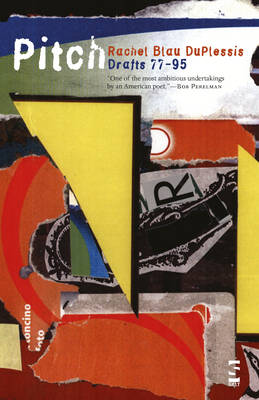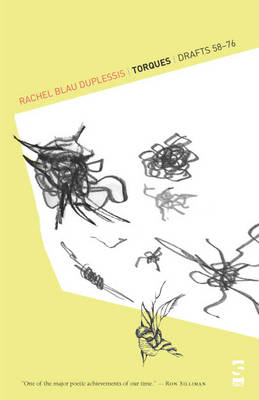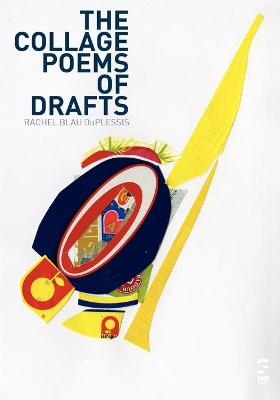Salt Modern Poets
4 total works
This book brings Drafts, the long poem by Rachel Blau DuPlessis, to its mid-point. A polyphonic work, both monumental and provisional, Drafts asks how to represent our sense of direness and ethical crises, the awe, asonishment, skepticism and pleasure: that all this is. This installment of nineteen Drafts is dedicated to its own poetic and political communities, offering these dedications as pledges to transformation out of social rage and out of grief-inflected hope. The book also contains a witty "summary" of all fifty-seven Drafts to date. This book makes clear the ways DuPlessis' long poem is a midrashic response to the long poems of modernism and the tolls of modernity. She is a poet of polysemy, of negativity, of critique. Of Drafts, Walter Kaladjian remarked, "DuPlessis' avant-garde procedures are imbricated in an ethicopolitical mode of poetic testimony." Nathaniel Mackey said that Drafts "affirm and negate the toll history takes on letter and spirit, affirming and negating and navigating a way between."
Pitch: Drafts 77-95 is a skeptical monument built and reassembled by a continuous folding over itself – tracking an encounter with an edge we might pitch over, with the pitch dark of our time, with our lurching desires to do the necessary work of seeing and understanding.
Anchored by two major serial poems proposing a poetics of the trace and responding to a key work of George Oppen, DuPlessis continues in this fifth book of nineteen poems working with themes of awe and grief, of confrontation with the world as it is and the projection, from the shards, of chips and gleams of another world.
The work is multi-generic, with a dazzling range from proverbs, fragments and interrogations to lists and open-page works. Drafts embodies and exfoliates a poetics of critique inside poetry, producing one of the more distinctive ethical-aesthetic practices in contemporary poetry. Other highlights of this collection are a two-poem dialogue with a work of Ingeborg Bachmann, a rewriting of a work of S.T. Coleridge, and an investigation of the meaning of writing that incorporates a serio-comic playlet between R and her Pen.
Twisted, knotted, struck by events and emotions at our historical moment, these Drafts register and produce torques – exaltation and tension, torsion and force, in their symphonic and bantering surges. In this book, DuPlessis transposes Wordsworth, Mallarmé, Pound and Rilke; she writes doggerel, a lexicon, dialogues, a mini-manifesto, and lyrics from a spirit voice. This book continues the ambitious long poem project that Ron Silliman has called “one of the major poetic achievements of our time.” Drafts, begun in 1986, manifests thematic and emotional investments centering on loss, struggle, and hope, on the unsayable and “anguage” – the language of anguish. Two main formal and structural principles center this work, repetition and the fold. The works repeat themes and images throughout, a recontextualization of materials, a building of traces, and a repetitive repositioning of images and narrative that also suggests both the waywardness of experience and a pensive responsiveness to what happens. The works are organized on a periodicity of nineteen, what DuPlessis calls “the fold.” Each new draft corresponds in some sensuous, formal, intellectual, allusive way to specific “donor” drafts. This tactic creates a widely spaced recurrence among the poems, and a chained or meshed linkage whose regularity is both predictable and suggestive, textured with malleable and porous internal relationships. The key genre animating Drafts is a strategy from Hebrew interpretive practices called midrash. Midrash is a continuous and generations-long commentary on sacred texts. Drafts as a whole project alludes to – but secularizes – this genre of serious commentary, spiritual investment, and continuous gloss.
Rachel Blau DuPlessis has, to cite Walter Benjamin, “an edgy attraction to history’s material residues.” This has been one motivation of Drafts as a decade-long project, and it is a central motivation for The Collage Poems of Drafts. This book consists of two sequenced mixed-media works for reading and looking that move back and forth across the porous border between language and image. Draft 94: Mail Art alludes to the international collage exchanges send by the post; Draft CX: Primer examines the suggestiveness of the alphabet as one baseline of language and poetry, one method of making signs. Both works suggest the transport of daily life. These collages are acts of making, layering, and evoking by juxtaposition. They are cryptic, gnomic, even partly narrative, but as a whole they announce her fundamental commitment to juxtaposition – via syntax and segment in the poetry, and via image and color in the collages. They produce actualized metaphor, with talismanic signage, gnomic language, color, script, string – a thread of suggestive meanings set in play. These works are part of the bricolaging, anti-monumental sensibility of the work as a whole. They glean, they unpack and layer, they deturn images, they rescue and reframe the debris.



